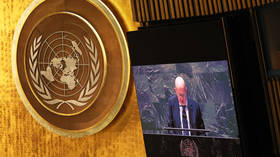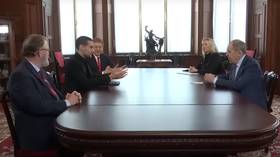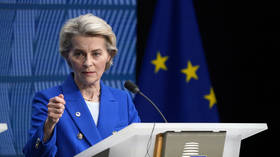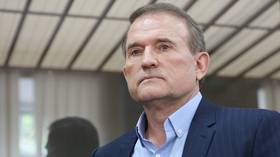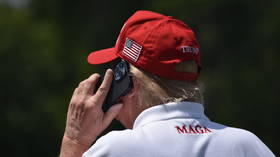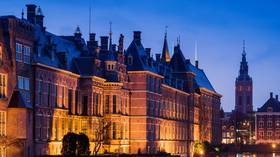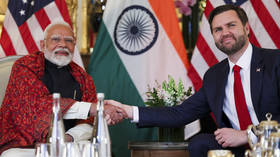Ukraine lodges formal EU membership bid
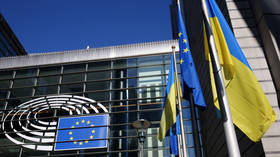
Ukrainian President Volodymyr Zelensky signed a formal EU membership bid on Monday amid the military offensive launched by Russia in the country.
“Our goal is to be with all Europeans and, most importantly, to be equal. I’m sure that’s fair. I am sure we deserve it,” Zelensky said in a video address shared on social media, urging the “immediate accession of Ukraine via a new special procedure” into the bloc.
The president claimed the ongoing Russian attack oil Ukraine means his citizens are “fighting not only for our country, but for all of Europe,” as well as purportedly “for peace for all.”
Ukraine’s potential ascension into the EU has been a favorite talking point of pro-western politicians in the country for decades now. The 2014 Maidan protests – which ultimately resulted in a coup overthrowing the country’s democratically-elected government and led to years of conflict with the breakaway regions in the east – largely revolved around EU aspirations as well. Still, Kiev made little to no actual progress in achieving its proclaimed goal over the years.
The renewed drive to join the EU has been met with apparent skepticism by the top officials of the bloc, who pointed out that no fast-track ascension procedure even exists. The process routinely takes years to come to fruition, while a potential member has to meet assorted criteria to join, political and economical alike.
German Foreign Minister Annalena Baerbock, for instance, said that while Ukraine is regarded as a part of the “house of Europe,” its potential ascension was not something that could be done in a couple of months.
“And it’s not that we woke up in a different world just now because the European Union has always been a house whose doors were open,” Baerbock said, adding that accepting Kiev into the bloc would not mean the latter seeks to sever the country from Russia.
EU top diplomat Josep Borrell provided even a longer time frame for a potential ascension of Ukraine, stating that any membership bid could take “a lot of years.”
Some leaders of the EU members, however, appeared to be more welcoming towards Kiev’s aspirations. Czech Prime Minister Petr Fiala said the bloc needed to show a clear sign to Ukraine that it was welcome, while his Slovenian counterpart, Janez Jansa, expressed his “full support” towards a speedier ascension procedure for Kiev.
